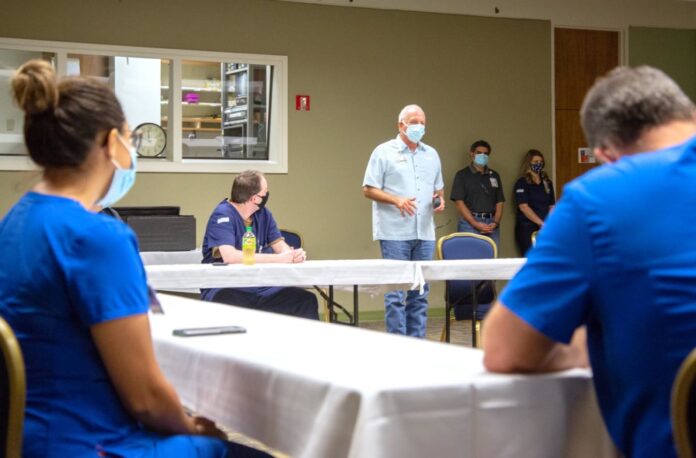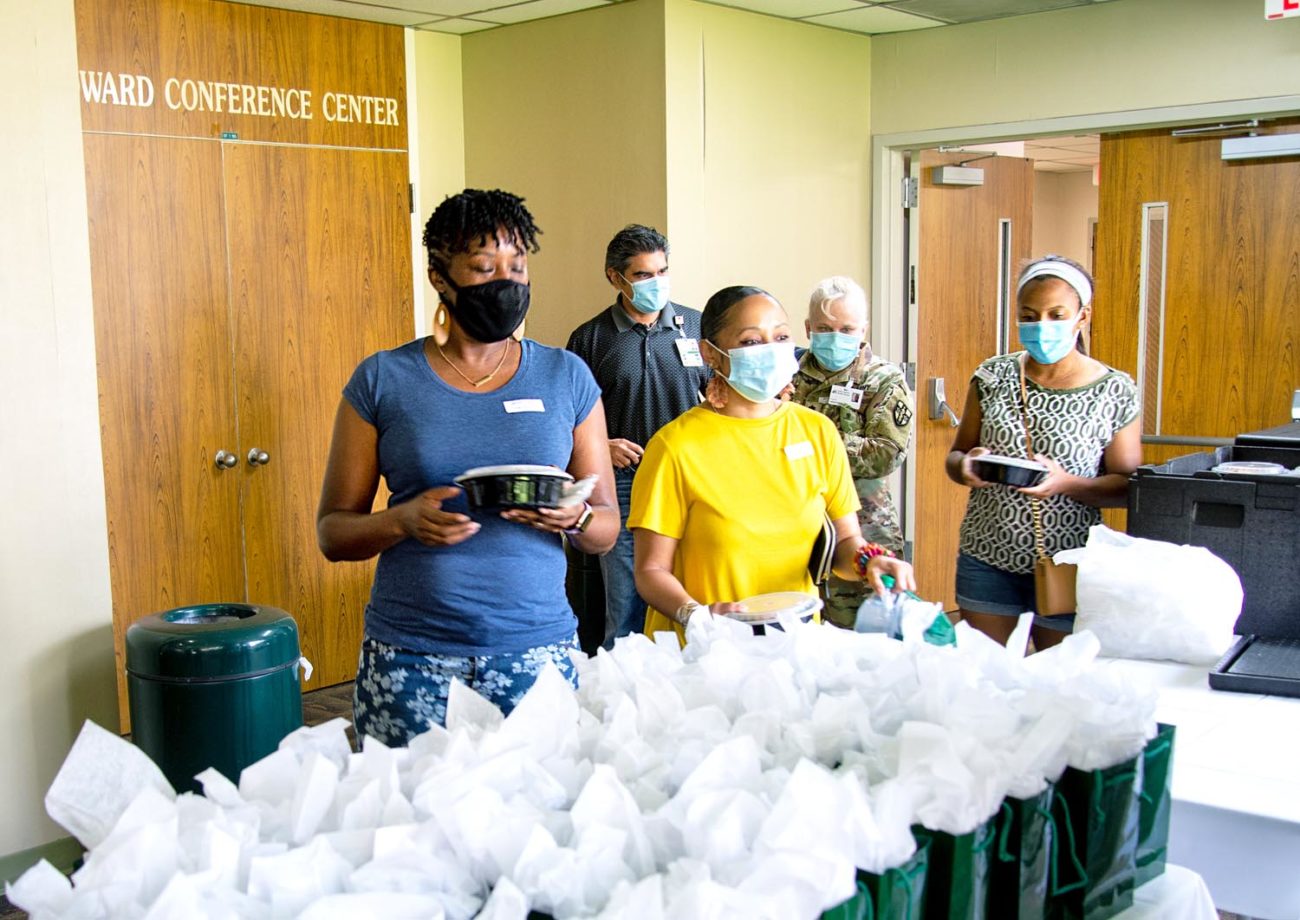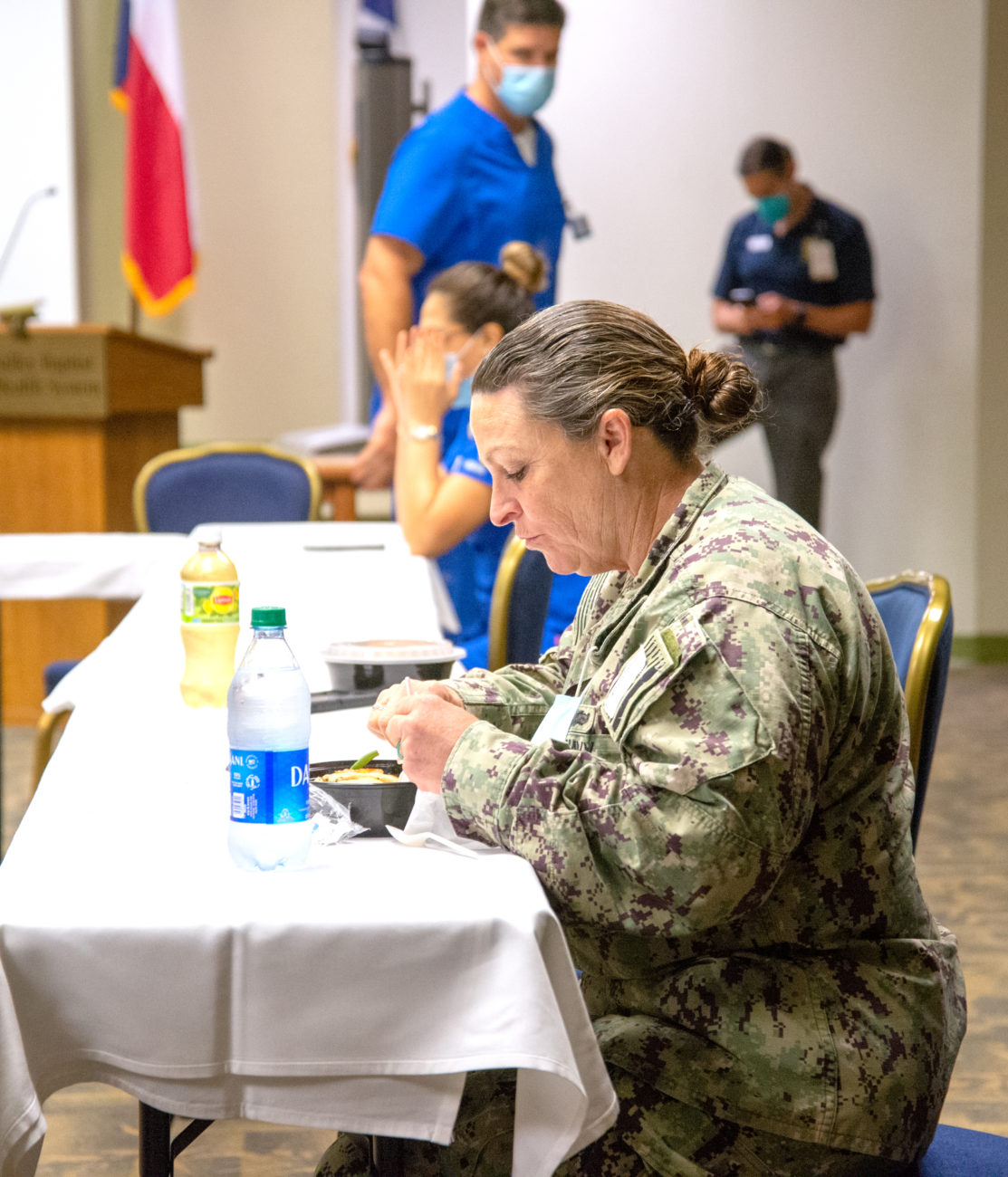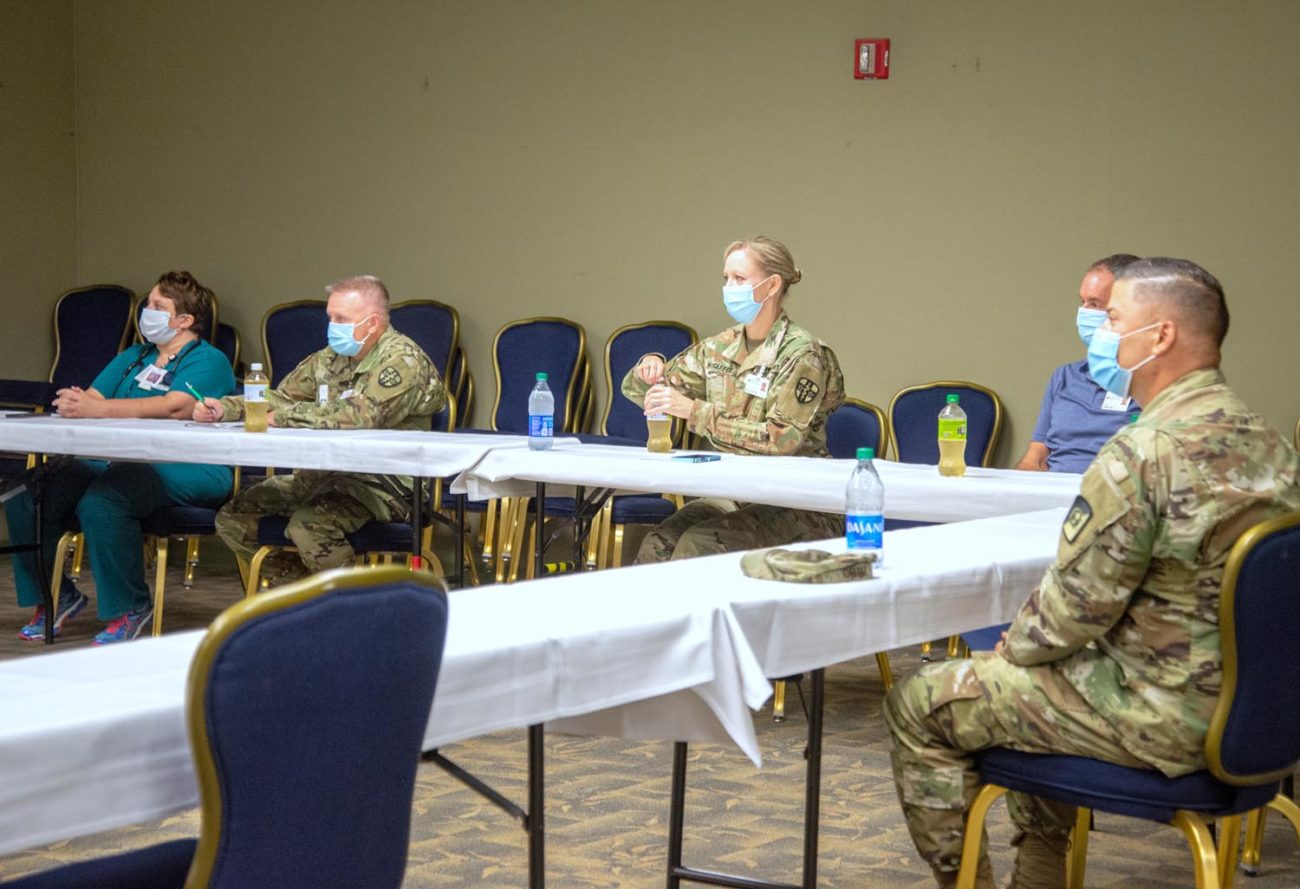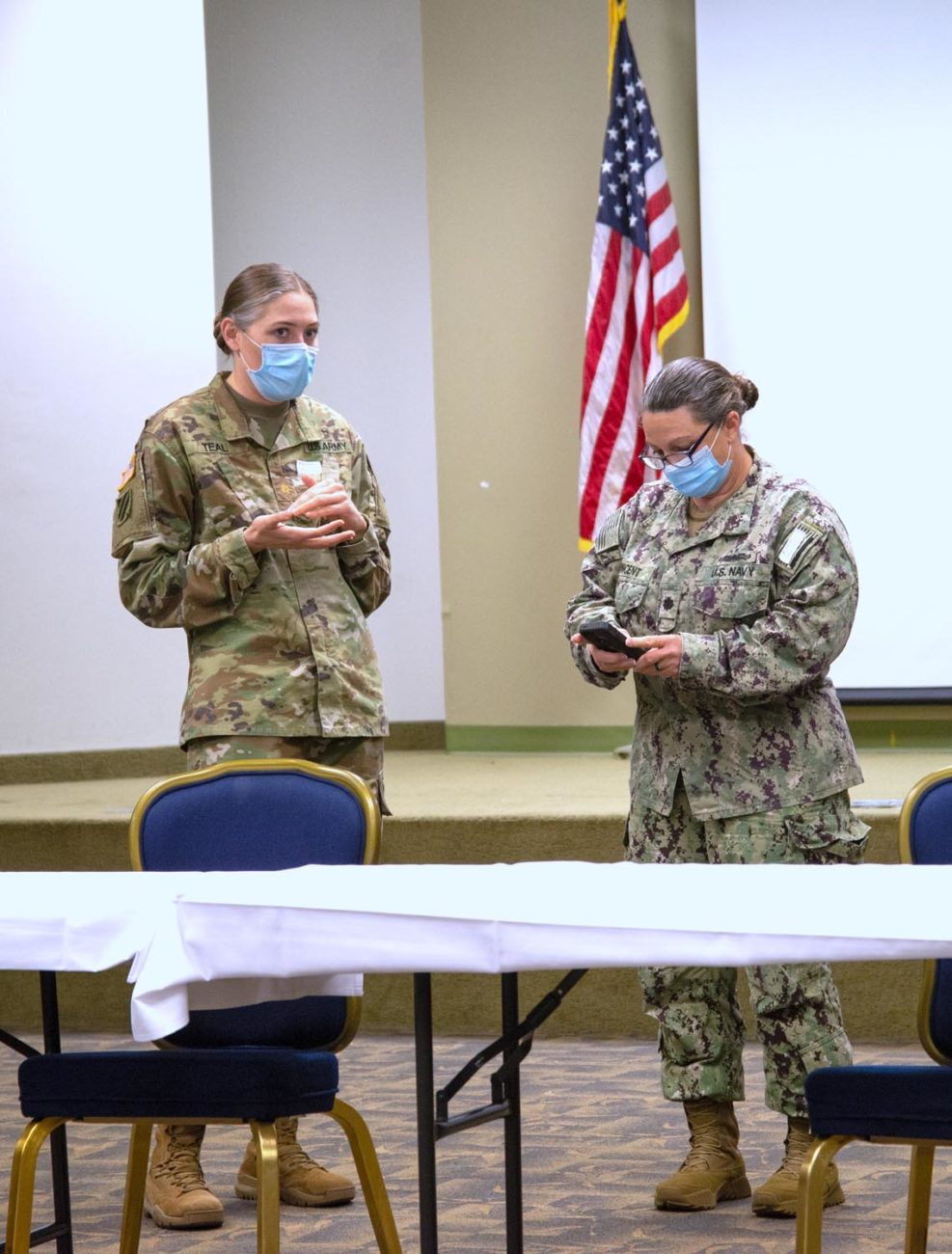HARLINGEN — They deployed here in the heat of a crisis, and now soldiers and sailors from across the country are preparing to head home.
Valley Baptist Medical Center held a luncheon this past week to thank Army and Navy physicians, nurses, and other medical personnel who have been helping with the COVID-19 crisis. Military medical teams from Florida, Georgia and other parts of the country arrived here after the Rio Grande Valley appealed to Gov. Greg Abbott for help with skyrocketing coronavirus cases.
“When our cases started to spike in July we reached out to the state and asked for some augmented staffing support,” said Manny Vela, CEO at VBMC-Harlingen.
The state sent non-military personnel from around the state — ambulances and emergency response teams — as well as military personnel. The Army and Navy teams were spread throughout Cameron and Hidalgo counties.
“They were across the spectrum: doctors, nurses, pharmacists, pharmacy techs, radiology techs,” Vela said. “And we’ve been able to ask them to take care of COVID patients on a specific floor. We’d given them a floor, and that’s where they’ve been providing the service for COVID patients.”
The 44-member Navy team is returning home today.
“We’ve seen patients from all different acuity levels that have required a wide range of care,” said U.S. Navy Capt. Susanne Blankenbaker, commander of the U.S. Navy Acute Care Team at VBMC.
The team, she said, was made up of doctors, physician assistants, respiratory technicians, certified nurse anesthetists and nurses.
“Our team has taken care of patients daily, communicated with physicians, and we’ve worked hard to make sure the patients get the care they need to recover,” Blankenbaker said.
Private First Class Michael Pinate, a U.S. Army reservist out of Miami, arrived here in late July. The combat medic has appreciated the chance to employ all his skills.
“Part of what I’ve been doing lately is taking vitals, blood sugar sampling,” he said. “In addition to that I do some patient care such as IV insertion, moving patients because they need to not be stuck on their backs for 24 hours at a time.”
He has also, on occasion, participated in what are called “code blues” in which he’s administered CPR. He’s also performed some secretarial work for the ICUs.
Pinate, 25, didn’t know what to expect when he was assigned to the COVID-19 relief mission.
“To be honest, I thought, ‘OK, I’m going to be doing thermometer checks at the entrance,’” he said. “Some of my compadres from different units had done that.”
But he was thrilled to learn the scope of the work he’d be doing.
“I had not typically taken that kind of responsibility,” he said. “When I went to ICUs, it was humbling.”
The mission challenged his capacity for adaptation. There was no real transition into the mission demands.
“It was more like, ‘Here’s the mission, do it,’” he said. “The nurses know what to do, the physicians know what to do, the hospital staff knows what to do. You just make sure you give the best mission care possible.”
Pinate said his unit would remain here a little longer, and they’d be filling in after the Navy leaves. Vela commended all military personnel for their valuable role in bringing the Valley’s coronavirus cases to manageable levels.
“They helped us while we were peaking and the numbers have been going down for the last four or five weeks, not only here in Cameron County but across the Valley,” Vela said.

